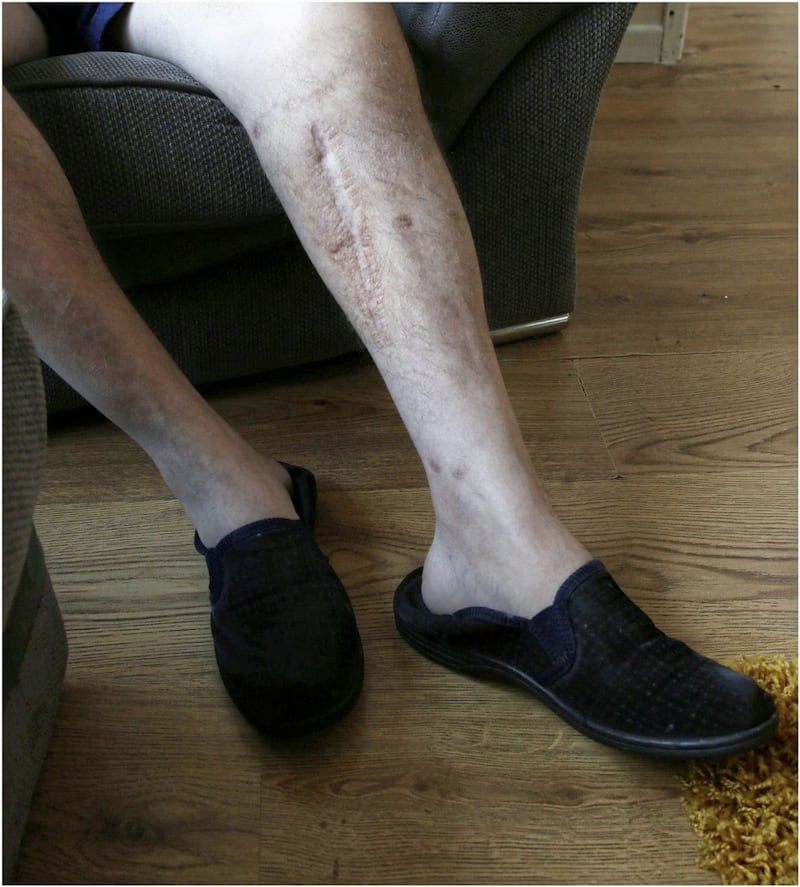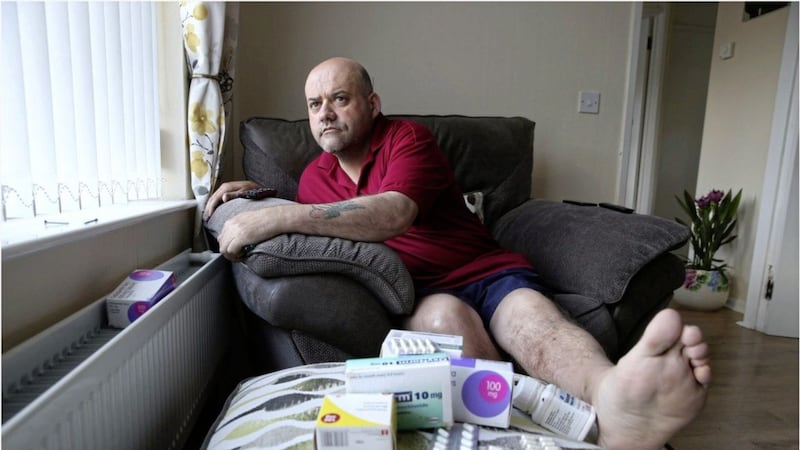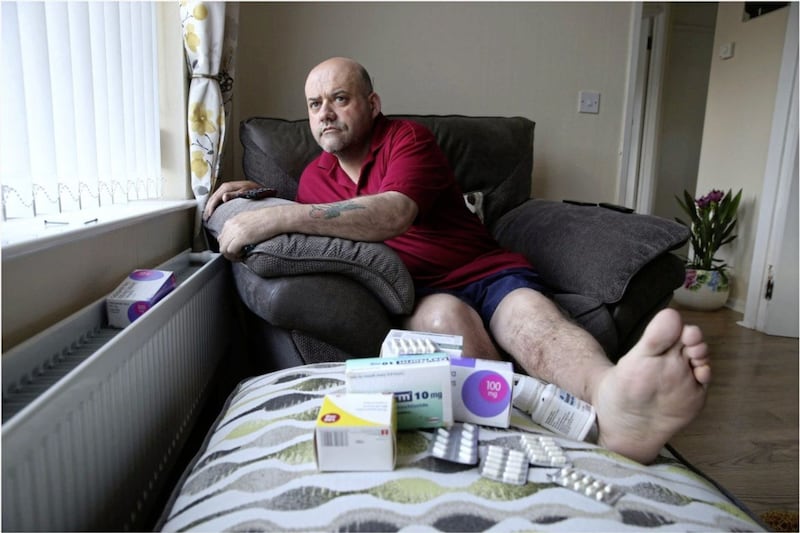A PATIENT who became an addict after being prescribed £500-a-month cannabis spray and morphine by the doctor at the centre of a recall scandal has learned he should never have been given the medication - and has a 'mild' illness.
Eamon Grogan (44), from north Belfast, has lost his home, his £1,000 a week job and his marriage since being referred to neurologist Dr Michael Watt five years ago suffering from a slight tremor.
The former taxi business owner says he become an 'addict' after being prescribed £500 a month 'cannabis spray' and morphine by Dr Watt - the consultant at the centre of a massive patient recall following 'safety concerns' about his work.
Mr Grogan is one of 2,500 patients who were called up for a review appointment by the trust last month - where he discovered that he has a 'mild illness' and was told by another consultant that he must stop taking all his medication, including diazapam and pain-killing drugs.
Living alone in a council house and relying on benefits, he was told three weeks ago at a health review clinic that he was being discharged back to his GP. He was also advised to "return to work".
In an interview with the Irish News, Mr Grogan hit out at the trust, saying he feels they have "cut him loose" and that he was used as a "guinea pig" for treatment.

He is now pursuing legal action for medical negligence and credits the SDLP's Nicola Mallon as being "instrumental" in helping him with his case.
Correspondence sent by the consultant who carried out a fresh assessment last month also reveals he has a "very mild" tremor - and not the serious Parkinson's related condition for which he was being prescribed medication by Dr Watt.
Read more:
- Timeline of patients recall crisis - what do we know to date?
- Annual appraisals of Dr Michael Watt not carried out prior to alarm being raised
Mr Grogan has also lost more than an inch of his leg and walks with a profound limp after the neurologist performed a treatment that he claims led to him being admitted to hospital for an operation and having his leg in a cage for 18 months.
"The consultant I saw last month discharged me from the Royal (hospital) said I can go back to work. Mentally I am in no fit state to go back to driving taxis or any type of work. I am addicted to cannabis and my personality has changed," Mr Grogan said.
"I've lost my house, I've lost my livelihood, I've lost everything. I was married and went from earning a £1000 a week to getting £100 in benefits."
The former taxi driver, who had 30 vehicles on the road and was driving for 25 years, has suffered from brittle bone disease since childhood but had no other conditions.
Five years ago he was lying on his sofa when he began to feel a strange sensation over his body.
"I thought there was a mouse in the sofa, so I took it out the back and chopped it up to find it. The same thing happened the next night in bed so I took the mattress out and ripped it apart," he explained.
"My doctor referred me to Dr Watt and he started me on medication straightaway. He told it was for Parkinson's Disease but that I didn't have Parkinson's. Due to the high strength of the medication I lost my PSV taxi driver licence."

With no diagnosis after a year of drug treament, Dr Watt then issued the Belfast man with a 'private prescription' for a cannabis spray, known as 'Sativex' - which cost Mr Grogan £490 a month.
"I paid almost £1000 over two months for this even though Dr Watt gave me the prescription when I was seeing him as a NHS patient at the Royal. Taking the spray was like having an ashtray in your mouth and it had no effect on me."
Notes from a consultant who carried the "detailed neurological examination" at Mr Grogan's review appointment conclude: "His history and (medical) examination are compatible with mild essential tremor.
"...I have advised Mr Grogan that I would not recommend any drug treatment therapy for his tremor at present given that it is mild...I have emphasised there is no evidence of Parkinson's disease."
In a statement released by the Belfast trust last night, a spokeswoman said: "It is clear that Mr Grogan is very upset about his care under Dr Watt. For this we are truly sorry. This recall process is to ensure that the patients have the correct diagnosis, the appropriate management plan and are receiving the appropriate medication.
"In terms of follow up this can take many forms including medical follow up, psychology follow up or counselling where appropriate. The Trust is keen to tailor follow up to the needs of the patient through the appropriate care pathway.
"We fully recognise the impact the recall process is having on Mr Grogan and for that we are deeply sorry. The Trust is satisfied that Mr Grogan’s follow up arrangements are appropriate at this time.
"Staff have been addressing Mr Grogan’s concerns and are communicating with him directly."
Ms Mallon described her constituent's experience as "harrowing" and said he deserves answers about the harm the drugs have caused.
"Instead of getting answers from the Belfast Trust, he has been discharged and he feels as if he has been thrown into the wilderness. He has been given no support apart from counselling which was only offered after we pressed for it," she said.
Read more:Timeline of patient recall crisis - what do we know to date?



